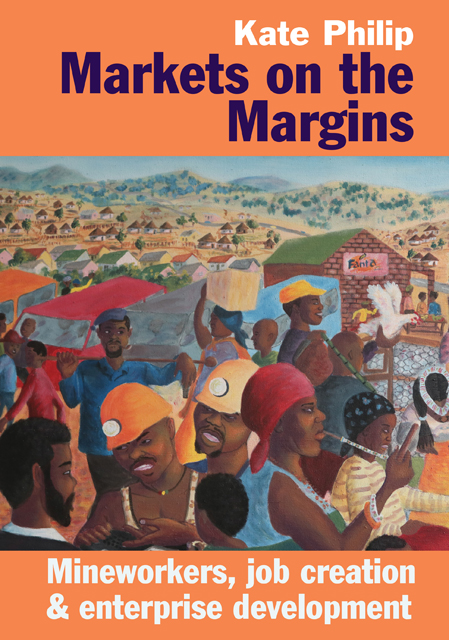Book contents
- Frontmatter
- Contents
- List of Illustrations
- Preface
- Acknowledgements
- Abbreviations
- 1 Introduction: Setting the scene
- 2 The 1987 Mineworkers Strike
- 3 Conflict in the Transkei
- 4 Power Struggles in Lesotho
- 5 Co-ops Capture the Imagination
- 6 The NUM Co-op Programme
- 7 Challenges of Democratic Ownership & Control
- 8 Rethinking Degeneration in Co-op Theory
- 9 The Mineworkers Development Agency’s Development Centre Strategy
- 10 Small Enterprise: In the shadow of the core economy
- 11 A New Enterprise Development Paradigm
- 12 Market Development – or a New ‘Anti-Politics Machine’?
- 13 Breaking into Higher-value Markets in the Craft Sector
- 14 Marula: Product innovation & value chains
- 15 Implications for Enterprise Development Strategy
- 16 If Markets are Social Constructs, how Might we Construct them Differently?
- Select Bibliography
- Index
1 - Introduction: Setting the scene
Published online by Cambridge University Press: 20 January 2023
- Frontmatter
- Contents
- List of Illustrations
- Preface
- Acknowledgements
- Abbreviations
- 1 Introduction: Setting the scene
- 2 The 1987 Mineworkers Strike
- 3 Conflict in the Transkei
- 4 Power Struggles in Lesotho
- 5 Co-ops Capture the Imagination
- 6 The NUM Co-op Programme
- 7 Challenges of Democratic Ownership & Control
- 8 Rethinking Degeneration in Co-op Theory
- 9 The Mineworkers Development Agency’s Development Centre Strategy
- 10 Small Enterprise: In the shadow of the core economy
- 11 A New Enterprise Development Paradigm
- 12 Market Development – or a New ‘Anti-Politics Machine’?
- 13 Breaking into Higher-value Markets in the Craft Sector
- 14 Marula: Product innovation & value chains
- 15 Implications for Enterprise Development Strategy
- 16 If Markets are Social Constructs, how Might we Construct them Differently?
- Select Bibliography
- Index
Summary
In 1987 the National Union of Mineworkers (NUM) called a national mineworkers strike: an epic twenty-one-day showdown between the five-year old NUM and the far more established South African mining industry backed by the might of the apartheid state. One of the many consequences of this strike was that some forty thousand workers lost their jobs. The dependence of South Africa’s mining industry on migrant labour meant these workers returned to homes scattered across the sub-region, with the largest numbers returning to the rural Transkei, in South Africa, and the small neighbouring mountain Kingdom of Lesotho.
In the aftermath, and as a response to these events, a job creation unit was established within NUM, but the job losses from the strike proved to be just the start of a period of restructuring in the mining industry during which over three hundred thousand jobs were shed over the next fifteen years. This period also coincided with dramatic changes in South Africa. At the start of the period, the political system of white minority rule known as apartheid was still in place; by the end of it, South Africa’s transition to democracy was nearly a decade old. Over the same period, democratic struggles were also unfolding in neighbouring states such as Lesotho, Mozambique and Swaziland – with their fates closely tied to events in South Africa.
While this book relates the story of one particular job creation initiative in a particular southern African and historical context, it nevertheless has wider implications and contemporary relevance for enterprise development strategies that aim to create jobs and reduce poverty in developing contexts. A core part of this challenge involves grappling with the role of markets in development, and whether and under what conditions enterprise development strategies in rural and peri-urban contexts can provide pathways out of poverty: or simply serve to lock people into it instead. These issues remain a current development priority.
The story that unfolds in this book is told from a particular perspective: I joined NUM in 1988, tasked with heading the new job creation unit and creating alternative forms of employment for workers dismissed in the strike.
- Type
- Chapter
- Information
- Markets on the MarginsMineworkers, Job Creation and Enterprise Development, pp. 1 - 16Publisher: Boydell & BrewerPrint publication year: 2018

